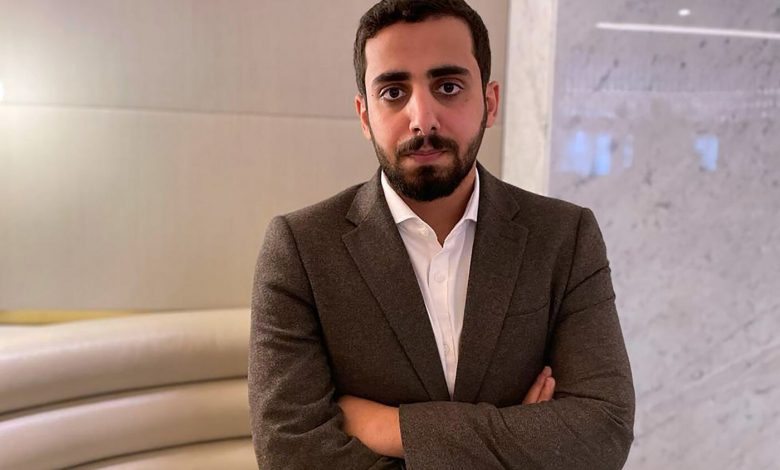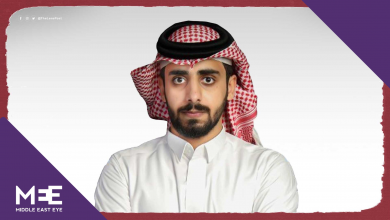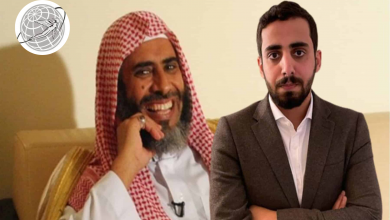Son of Jailed Saudi Cleric Says Life Threatened, Seeks Asylum in UK

Bloomberg. By Ryan Gallagher
The son of a prominent jailed Saudi cleric has fled the kingdom and applied for asylum in the UK, saying his life was threatened by Saudi authorities.
Nasser Al-Qarni said he was warned by Saudi state security officials that he would be put in jail or executed if he criticized the treatment of his father, Awad Al-Qarni. The elder Al-Qarni was arrested in 2017 for tweeting criticism of the kingdom, according to a letter from United Nations human rights envoys.
Bloomberg News couldn’t independently verify the younger Al-Qarni’s allegations of being threatened, which he made during an interview with Bloomberg News at a hotel in central London.
Saudi Arabia’s Foreign Ministry, Center for International Communication and embassies in Washington DC and London didn’t respond to requests for comment. A representative for the UK government’s Home Office said the agency doesn’t comment on individual cases.
The father, Awad Al-Qarni, was arrested in September 2017 as part of a crackdown on Saudi citizens who had been critical of the government. Then-Foreign Minister Adel Al-Jubeir said at that time that those jailed, which included clerics, academics and businessmen, “were pushing an extremist agenda.”
Al-Qarni, who is independent of the official religious establishment, last re-tweeted a message to his two million Twitter followers in September 2017. He was a professor at two Saudi universities and had criticized the Saudi government’s arrests and enforced travel bans targeting intellectuals, according to a letter authored by a group of six United Nations human rights envoys in November 2019, which flagged concerns about Al-Qarni’s case and the “unlawful imposition” of the death sentence on him and other prisoners.
Al-Qarni was arrested and charged based on the content of his tweets, according to the U.N. envoys’ publicly available letter. The Saudi public prosecutor had sought the death penalty for Al-Qarni and charged him with a series of alleged offenses, including “incitement to offend the leaders of other States,” “incitement to fight” and supporting the Muslim Brotherhood, which is designated a terrorist organization in Saudi Arabia, the letter stated.
The Saudi government wrote in a response to the U.N. envoys that Al-Qarni was “arrested for committing several offenses punishable under the laws applicable in the Kingdom” and added it was “committed to adhering to the provisions and rules of international human rights law.”
Human Rights Watch said in a September 2017 report that the arrest of Al-Qarni and other clerics “fit a pattern of human rights violations against peaceful advocates and dissidents, including harassment, intimidation, smear campaigns, travel bans, detention and prosecution.”
The crown prince, who took on the additional role of prime minister last week, has rapidly transformed the kingdom, loosening social restrictions and seeking foreign investment. At the same time Saudi Arabia has embarked on a widespread crackdown on government critics — from rights activists to clerics.
The murder of Saudi critic and columnist Jamal Khashoggi, in the kingdom’s Istanbul consulate in 2018 made the crown prince a pariah in the West. But amid a surge in oil prices earlier this year, US President Joe Biden visited the kingdom. The crown prince has said he didn’t order Khashoggi’s killing but said he took responsibility for it as de facto ruler.
“Under Mohammed bin Salman, the situation in Saudi Arabia has really badly changed,” said the jailed cleric’s son, Nasser Al-Qarni, 24, who spoke through an interpreter. “If any Saudi person would like to express their opinion they have two options: face imprisonment, which could lead to the death penalty. Or you live with your mouth shut and you cannot say a word that criticizes him or the authorities.”
Al-Qarni denied the allegations against his father, whom he said was also charged with owning banned books and comments made on Twitter including advocating for the fair treatment of political prisoners.
He said he had traveled to London to claim asylum, raise awareness of the crackdown in Saudi Arabia and to try to save his father’s life. A video posted on his Twitter account on Oct. 1 announcing he had left Saudi Arabia has been viewed about 1.4 million times.
Al-Qarni said he had attempted to advocate for his father’s release in Saudi Arabia and was interrogated by state security officials on several occasions. “They wanted me to adopt their version of the story,” he said, adding that the officials told him he was prohibited from leaving the country. He recently obtained a passport and fled the country without informing any of his family members, he said, first traveling to Jordan and then onward to London, where he arrived in mid-September.

